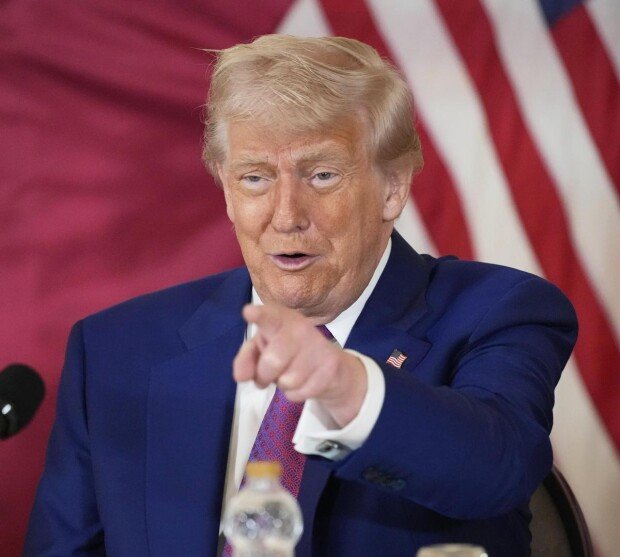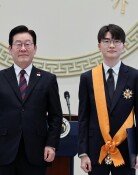Trump’s visit drives massive Boeing deals in Middle East
Trump’s visit drives massive Boeing deals in Middle East
Posted May. 16, 2025 08:07,
Updated May. 16, 2025 08:07

On May 14, the White House highlighted the economic gains from President Donald Trump’s visit to Qatar, spotlighting a historic aircraft purchase agreement as a key achievement. Qatar Airways inked a deal worth $96 billion with U.S. aerospace giant Boeing, which the White House described as a “landmark contract.” The day before, during Trump’s trip to Saudi Arabia, Boeing secured an additional $4.8 billion order for planes.
Experts say these purchases reflect both Trump’s personal enthusiasm for aircraft and the competitiveness of the American aerospace industry. Middle Eastern oil-rich nations, leveraging their “oil money” and strategic oil supplies, have long focused on expanding their airlines and remain eager buyers.
Bloomberg reported that “Trump’s longstanding fascination with aircraft has become a useful tool for governments and businesses courting his favor.” The news outlet also referenced the recent controversy over Qatar gifting Trump a Boeing 747-8 presidential jet as “the most striking example of nations and companies trying to win Trump’s approval through planes.”
Trump owns a personal Boeing 757, nicknamed “Trump Force One,” purchased secondhand in 2011. He also once operated an airline called the “Trump Shuttle.” His strong connection to aviation is well known. The White House added that the Qatar-Boeing deal would support about 154,000 U.S. jobs annually during production and delivery.
Boeing, the world’s top commercial aircraft manufacturer, is a cornerstone of American manufacturing. Aircraft sales often factor heavily in U.S. trade talks. For example, the U.S.-U.K. trade agreement announced May 9 included a $13 billion order from British airline IAG for 32 Boeing 787-10 jets.
As one of America’s most competitive industries, aerospace is sometimes used as leverage in trade disputes. Last month, China retaliated against high U.S. tariffs by banning Boeing aircraft purchases. After agreeing to a 90-day tariff suspension with the U.S., China allowed its airlines to resume acquiring Boeing jets. Bloomberg Intelligence analyst George Ferguson predicts Boeing orders will continue to be a key element in global trade negotiations.
김윤진기자 kyj@donga.com



![8년전 한밤 중 목욕탕에 나타난 김정은, 분노한 이유는 [주성하의 ‘北토크’]](https://dimg.donga.com/c/138/175/90/1/wps/NEWS/IMAGE/2026/01/23/133210584.1.jpg)
![[광화문에서/김준일]단식 마친 장동혁… 중요한 건 단식 그 다음](https://dimg.donga.com/c/138/175/90/1/wps/NEWS/IMAGE/2026/01/23/133221688.1.jpg)

![라면 먹고도 후회 안 하는 7가지 방법[노화설계]](https://dimg.donga.com/c/138/175/90/1/wps/NEWS/IMAGE/2026/01/23/133219600.3.jpg)
